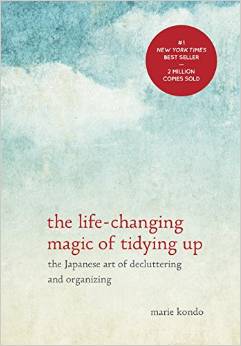Does your cat have one of the most popular cat names?
Interesting list!
Rover.com has released its list of the most popular cat names for 2014. Personally, I find it hilarious that half of the list overlaps with the list of the most popular baby names for the year, compared to only 30% of the dog list. I guess we cat owners are more likely to consider our cats honorary babies than dog owners are?
The top ten cat names for male cats are:
1. Charlie
2. Jack
3. Jasper
4. Dexter
5. Milo
6. Fred
7. Simon
8. Simba
9. George
10. Boomer
For female cats, the top ten names are:
1. Lily
2. Chloe
3. Lucy
4. Bella
5. Luna
6. Maddie
7. Emma
8. Coco
9. Molly
10. Callie
"Dexter" is a particularly apt name, since aren't most cats basically serial killers at heart?
Outbreak of dog flu in the Midwest
Canine companions stricken
Many dogs have been sickened by a particularly virulent strain of dog flu in the Midwest, and some veterinarians are urging dog owners to be cautious about dog-to-dog contact with strange dogs. Over 1,000 dogs have fallen ill in Illinois, Wisconsin, Indiana, and Ohio, with many more sure to come.
The strain of flu has been identified as H3N2, which can cause coughing, fever, and a runny nose. As with human flu, dog flu can be fatal, particularly for dogs with compromised immune systems, puppies, elderly dogs, and dogs who are otherwise in a weakened state already.
H3N2 cannot be spread to humans, but it can spread to other dogs, and even to cats. Owners of sick dogs are urged to keep them away from dog parks and other areas where they could spread the germs to healthy dogs.
The fascinating defense of the Iberian newt
Don't touch this fellow!
I am always fascinated to read about interesting ways animals have evolved to defend themselves. I thought I had heard it all, until this week I learned about the Iberian newt.
The Iberian newt lives on the Iberian Peninsula and Morocco. It has little ports along its sides (tubercules), and very sharp, pointed ribs. When threatened, the Iberian newt will stick its sharp ribs out through the holes, puncturing its own side, in order to present a very pointy mouthful to any would-be predator.
As if that weren't enough, at the same time, the newt begins to pump out a toxin from glands alongside the holes. This toxin coats the ribs as they push through, adding a coat of poison to the improvised weapons. The toxin causes a stinging sensation, making it even more likely the newt will be dropped after jabbing its predator in the mouth.
The newt is able to heal its own puncture wounds quickly, thanks to a super-efficient immune system. And because the ribs are coated with collagen, the wounds are less likely to become infected.
As a side note, because of its healing ability and several other factors - including the female's ability to retain sperm, and thus fertilize herself up to five months after insemination - the Iberian newt has proven to be a popular item for space travel. Iberian newts have gone into space to be studied in a zero gravity environment on at least six missions, possibly more.
Stray cat saves abandoned baby
Amazing!
Winters are harsh in Obninsk, Russia. When a twelve week old baby was abandoned on the floor of an apartment complex overnight, you wouldn't think it would have much of a chance.
Neither did Masha, the apartment building's resident homeless cat. Masha saved the helpless baby boy's life by curling up around him. She spent the night wrapped around the baby, insulating it from sub-freezing temperatures.
Masha is by all accounts a quiet cat, but when she heard people coming, she started meowing. Alerted by her unusual cries, apartment resident Irina Lavrova worried that Masha was sick or injured. When she went to investigate, she found the cat still curled up around the baby, who had made it through the night with flying colors.
When paramedics arrived to take the abandoned baby to a nearby hospital, Masha continued to be protective of him, reportedly running after the ambulance to try and jump in. She apparently spent several hours in the road, waiting for the baby to come back.
The baby is in excellent health, and hopefully someone will take Masha in now, as well. She deserves it!
Supercut: 2 minutes of cats attacking door stoppers
Battle to the death!
Door stoppers, those funny springy things that make a wacky noise, are apparently irresistible to some of our feline friends. Check out this hilarious video complied of home videos of cats battling door stoppers to the death! My favorites are the ones where cats reach under the doors to grab the stoppers.
A word of caution: door stoppers are not intended as a cat toy. If your cat is obsessed with door stoppers, keep an eye on it. Cats have been known to chew the rubber ends off the stopper, which can cause an expensive trip to the emergency room to get it surgically removed before it causes an intestinal blockage.
But for the most part, if your cat likes playing with door stoppers, have fun playing with them! Play is an important part of any cat's life, and finding something entertaining attached to the wall is a great example of how cats are masters of improvisation.
Wisconsin students make world's largest Rice Krispy Treat
Deliciously enormous!
One night, UW-Madison physics student Joe Tarnowski and some of his friends made a 15-pound Rice Krispy Treat in their dorm room. The experiment was such a spectacular success that they decided to scale it up, try to go for the world record, and raise some money for charity at the same time.
Over the weekend, a team of 30 students worked tirelessly to create a record-breaker, one which would top the previous record of 10,314 pounds which was set in 2010. That treat measured 12 x 8 x 7 feet.
With generous donations of 9,000 pounds of marshmallows, 5,500 pounds of Rice Krispies cereal, and 900 pounds of butter, the students set to work. The result was magnificent, and after properly documenting it, the students sliced it up to be sold off to benefit local charities.
Women reunited with cats lost in East Village explosion
Heartwarming!
After an explosion in the East Village killed two people and destroyed three buildings, many residents fear that their pets have been killed. Yesterday two women who lived at 125 2nd Avenue were reunited with their cats.
The ASPCA and the NYPD are searching the building, which is locked down under a full vacate order. As they sifted through the rubble, they first located Kathleen Blomberg's cats, Kitty Cordelia and Sebastian, hiding under the bed in her seventh floor apartment.
They also located one of two of Yvonne Collery's cats, Laszlo, hiding inside a closet in her fourth floor apartment. Collery's other cat, Lulu, is still missing.
The ASPCA, along with the NYPD and the FDNY, is working tirelessly to find more pets from the destroyed buildings, and hopefully reunite them with their owners.
Meet the world's biggest rabbits
Don't try to steal this guy's Easter eggs!
It's no trick photography or optical illusion: these rabbits really are four feet long. Annette Edwards raises Continental Giant rabbits, also known as the German Giant. This breed is descended from the legendary Flemish Giant, and was originally developed in 1893 as a meat breed. But Edwards raises her rabbits for show, and quite a show it is!
Edwards's rabbits are neck-and-neck for the world records. Her rabbit Darius currently holds the world record, while Darius's son Jeff is an up-and-coming contender. Darius is over four feet long, and clocks in at 53 pounds. Jeff is three feet eight inches long, and is still growing.
Edwards raises her rabbits in Worcestershire, England, where they gobble up 2,000 carrots and 700 apples every year, not including their regular rabbit food. Edwards claims the giant rabbits are easier to raise than regular rabbits, since they are more laid back and less skittish and active.
Thrift shops are thrilled for the success of this decluttering book
Marie Kondo is changing people's lives
Have you read Marie Kondo's "The Life-Changing Magic of Tidying Up" yet? If not, you might be in the minority. This instant bestseller has swept people up in a frenzy of decluttering, destashing, and general closet-emptying. To such an extent that thrift store donations are measurably on the rise. Crain's Chicago Business discovered that Goodwill donations in one Chicago neighborhood for the month of January (the book was published in the United States in October) were up by 12 percent over the previous year.
Kondo is an organizing consultant in Japan, and her success there has easily translated to booming sales in America. Kondo's book is hitting a nerve with readers, who face overstuffed closets, cluttered end tables, and bookshelves groaning with collectibles and books.
Kondo's main thesis is that you should get rid of anything that doesn't "spark joy" when you see it. This includes wedding keepsakes, travel trinkets, and even family photographs. Kondo takes a hard line: for example, she makes a persuasive case that you should pull every single family photograph out of your albums, then pick out the ones that give you joy, and throw the rest away.
It's hard to let go of things you have an emotional attachment to, but which don't actually bring you joy. As someone who is doing a massive cull in preparation for a cross-country move, I am currently embroiled in this struggle in a big way!
3 novels set in Los Angeles
Get your fictional travel on!
There is no better way to develop a sense of place than by reading novels set there. Los Angeles has been on my mind lately, which got me thinking about the best novels set in one of America's most-loved and most-hated cities.
This novel is the perfect encapsulation of a particular slice of time (the 80s), a particular place (Los Angeles), and a particular clique (privileged trust fund kids in their 20s with more money than sense). Fueled by cocaine and an overriding sense of hopelessness, Less Than Zero is a scathing trip through Los Angeles's glittering, upscale party culture.
Set in a poverty-stricken Los Angeles neighborhood during the Depression, Ask the Dust is a masterful tale of a struggling novelist. Charles Bukowski cited the novel as a key influence, and was himself influential in rescuing it from obscurity.
It is impossible to discuss Los Angeles in fiction without talking about Raymond Chandler's seminal noir detective novel. Cynical, sharp, and witty, The Big Sleep sets Chandler's hard -oiled detective Phillip Marlowe against a blackmail threat that twists and turns through pornography, murder, and more.












